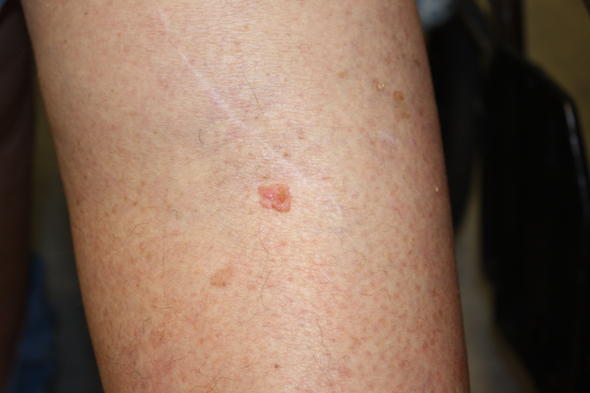
Photograph showing a person’s leg with a skin cancer lesion that looks pink and raised.
IRISH people who work in the outdoors need to be more aware of the dangers of skin cancer, experts have warned.
According to a new European report, almost 14.5 million workers in Europe spend at least 75% of their working time outside. After just five years of working outdoors, these workers have a two-fold increased risk of developing non-melanoma skin cancer.
People living in Donegal believe that with our often wet weather they are immune to skin cancer. They aren’t.
In fact non-melanoma skin cancer is the most commonly diagnosed cancer in Ireland, with around 6,300 new cases every year.
The report, Non-Melanoma Skin Cancer by Solar UV. The Neglected Occupational Threat, was written by the European Academy of Dermatology and Venereology (EADV). It noted that outdoor workers were significantly less likely to try to prevent skin cancer and had poorer health literacy.
Health literacy refers to a person’s ability to read, understand and use healthcare information to make appropriate decisions about their health, including following instructions for treatment.
The report calls on European member states to recognise non-melanoma skin cancer as an occupational disease.
It also calls on the EU Commission to revise the 2006 Directive on Artificial Optical Radiation to include solar UV radiation within its scope. This directive currently only defines limits for exposure of workers to artificial optical radiation to the eyes and skin. It completely excludes the exposure of workers to sunlight.
“Far too many of our patients diseased with work-related skin cancers ask us ‘why has nobody told me before? I would then have protected myself’. This has to change. Prevention is simple and cheap,” commented one of the editors of the report, Prof Swen Malte John, of the EADV.
The report is published in the Journal of the European Academy of Dermatology and Venereology.
Tags:







